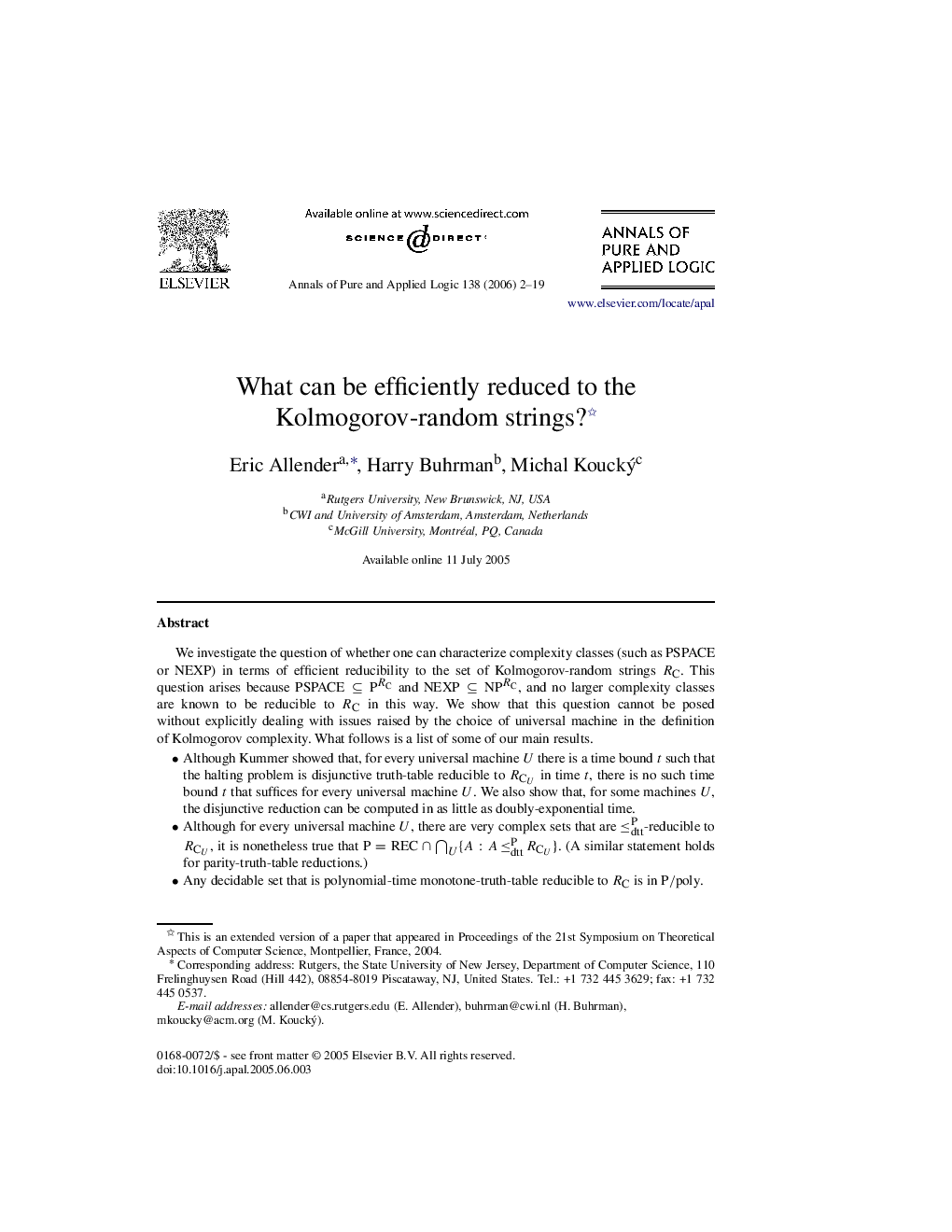| Article ID | Journal | Published Year | Pages | File Type |
|---|---|---|---|---|
| 4662604 | Annals of Pure and Applied Logic | 2006 | 18 Pages |
We investigate the question of whether one can characterize complexity classes (such as PSPACE or NEXP) in terms of efficient reducibility to the set of Kolmogorov-random strings . This question arises because and , and no larger complexity classes are known to be reducible to in this way. We show that this question cannot be posed without explicitly dealing with issues raised by the choice of universal machine in the definition of Kolmogorov complexity. What follows is a list of some of our main results. •Although Kummer showed that, for every universal machine U there is a time bound t such that the halting problem is disjunctive truth-table reducible to in time t, there is no such time bound t that suffices for every universal machine U. We also show that, for some machines U, the disjunctive reduction can be computed in as little as doubly-exponential time.•Although for every universal machine U, there are very complex sets that are -reducible to , it is nonetheless true that . (A similar statement holds for parity-truth-table reductions.)•Any decidable set that is polynomial-time monotone-truth-table reducible to is in .•Any decidable set that is polynomial-time truth-table reducible to via a reduction that asks at most f(n) queries on inputs of size n lies in .
